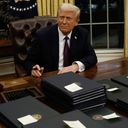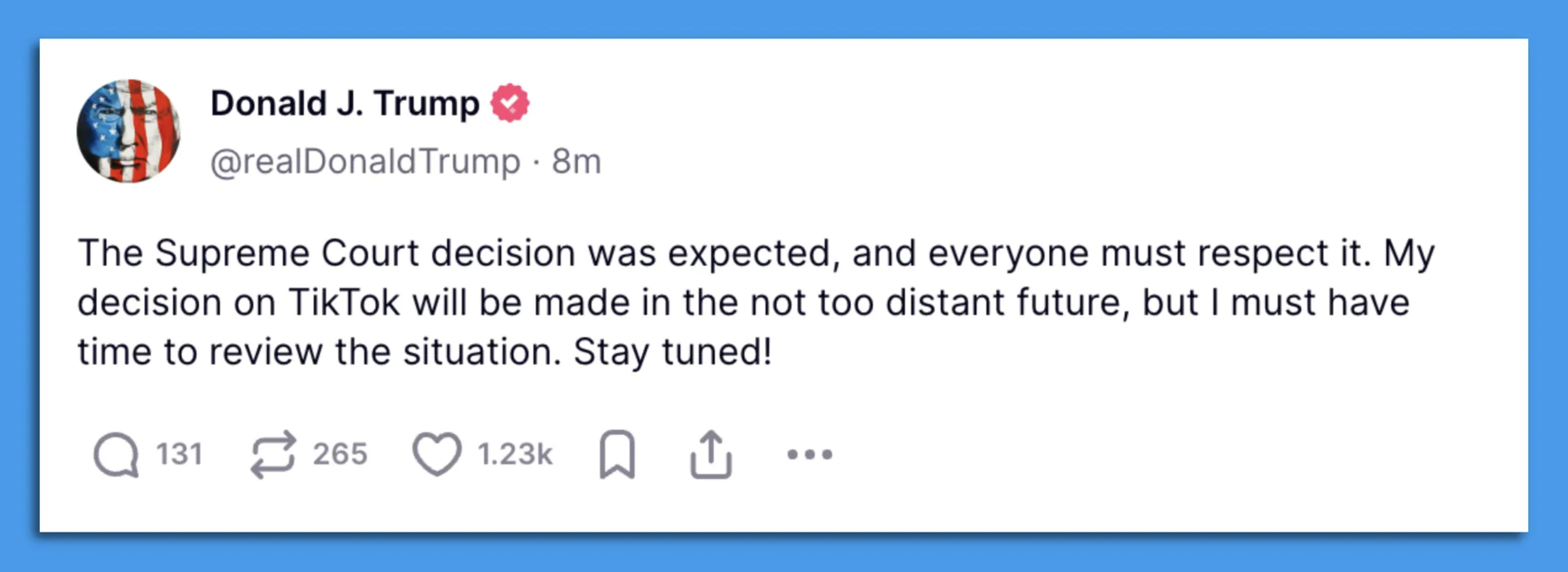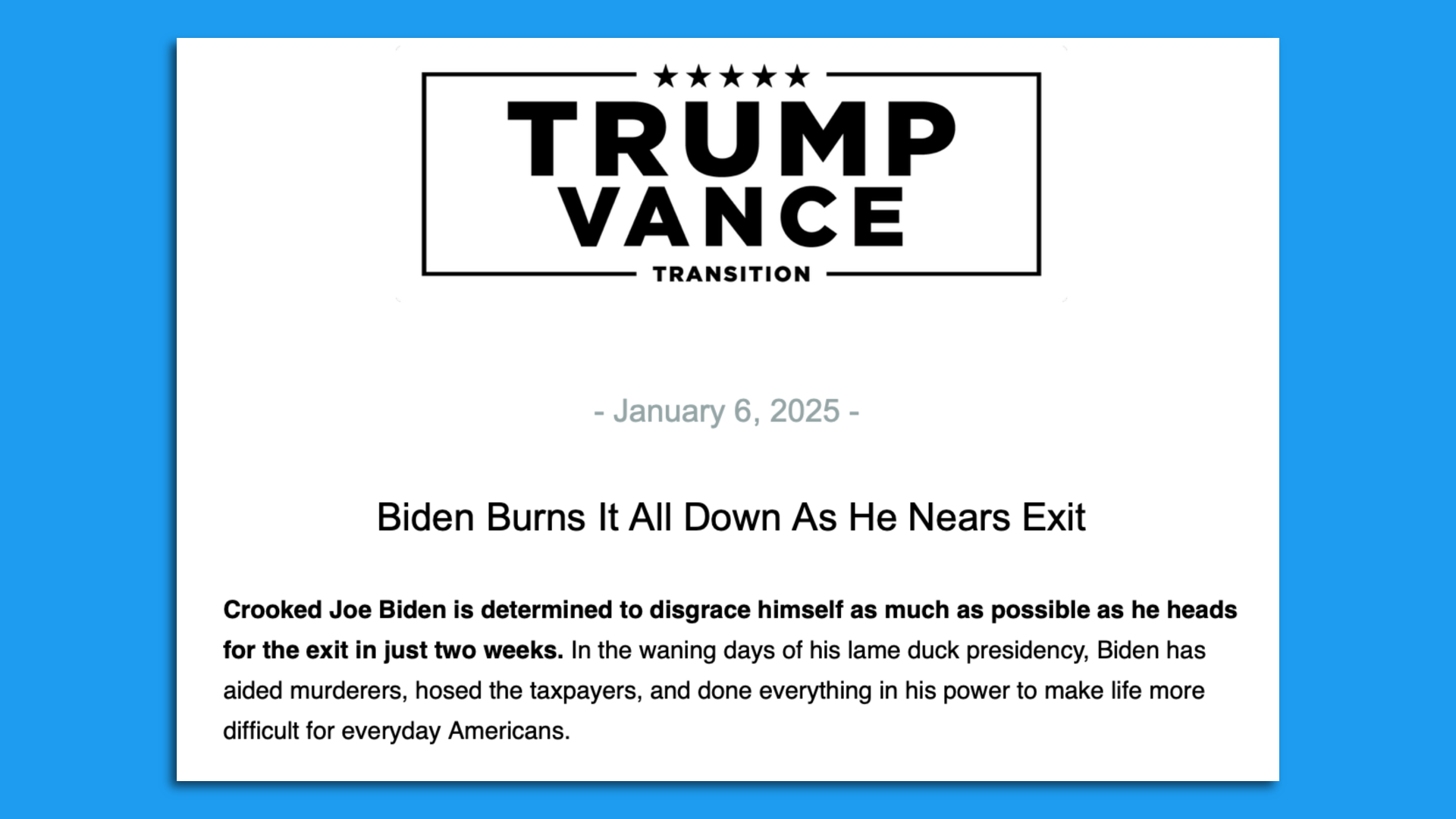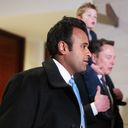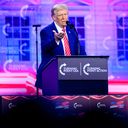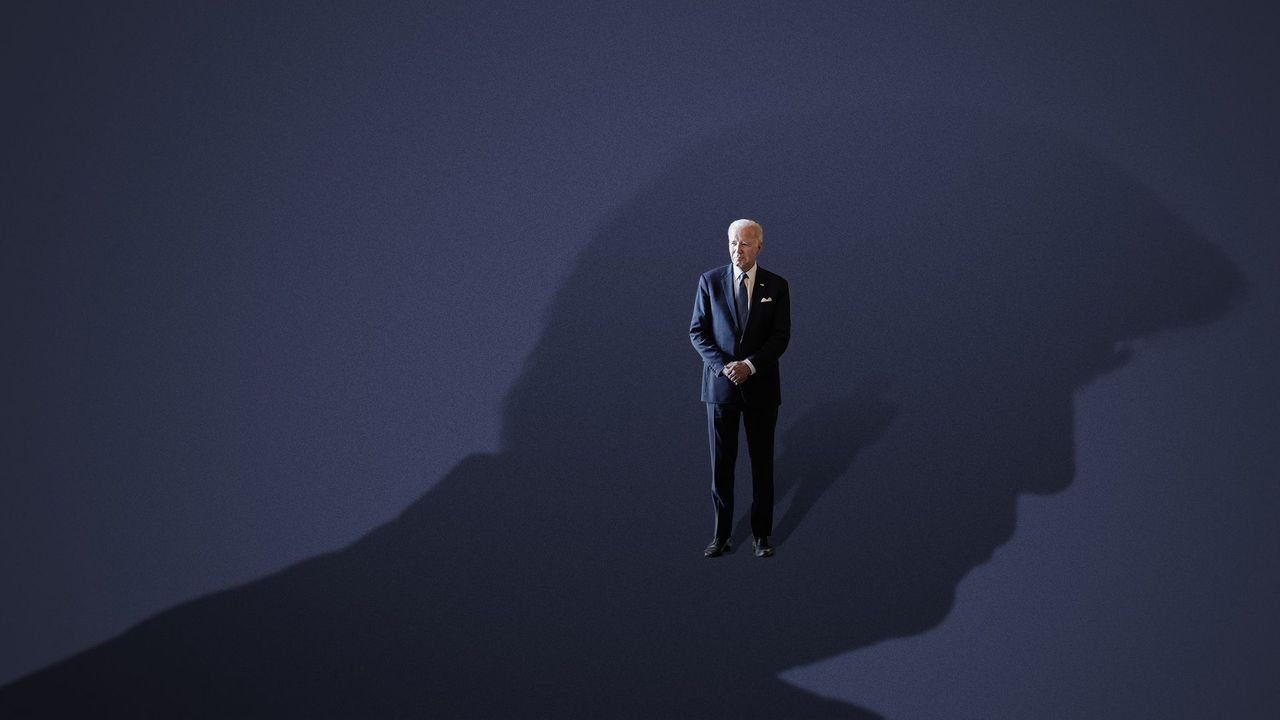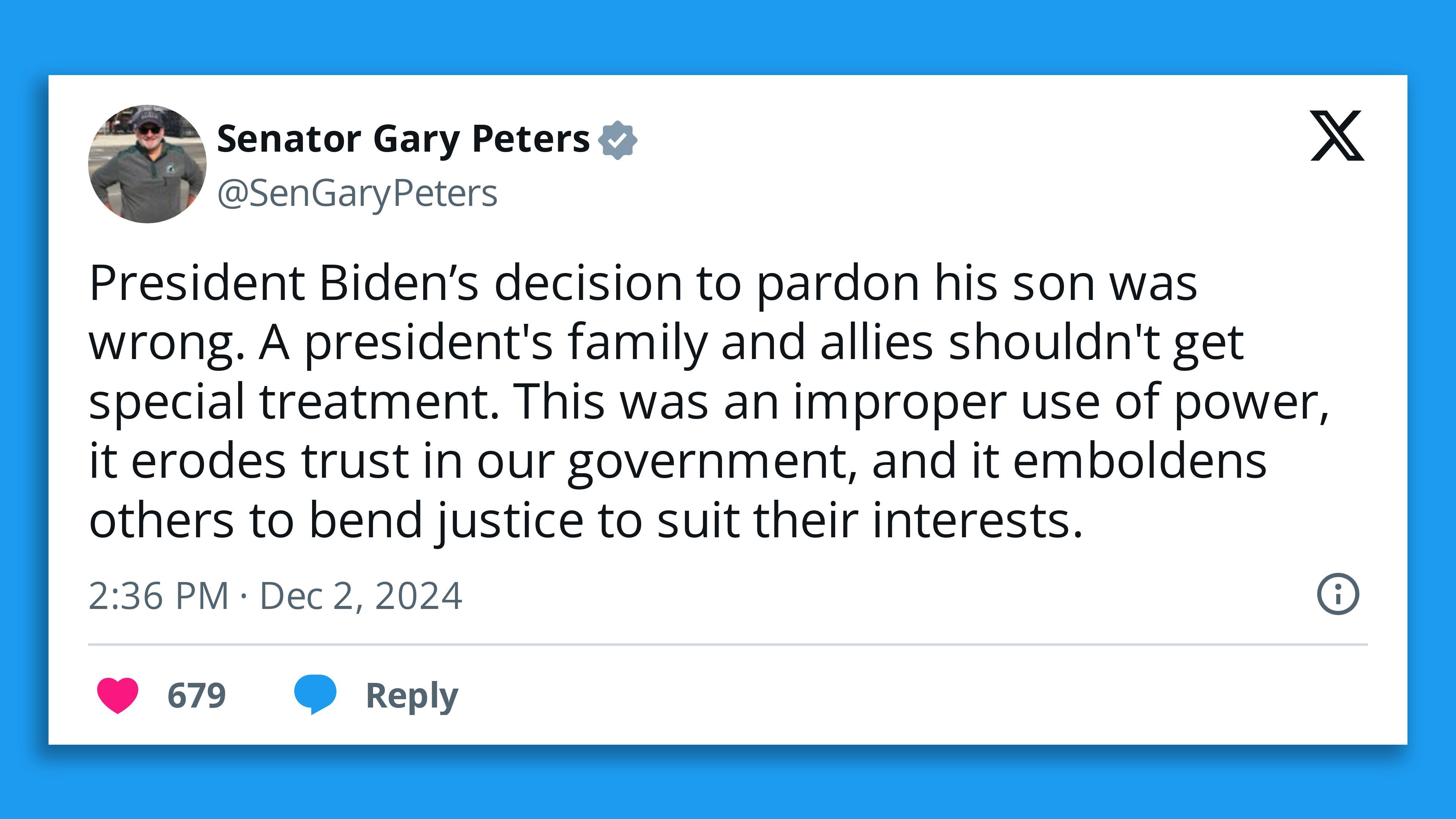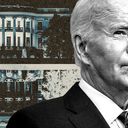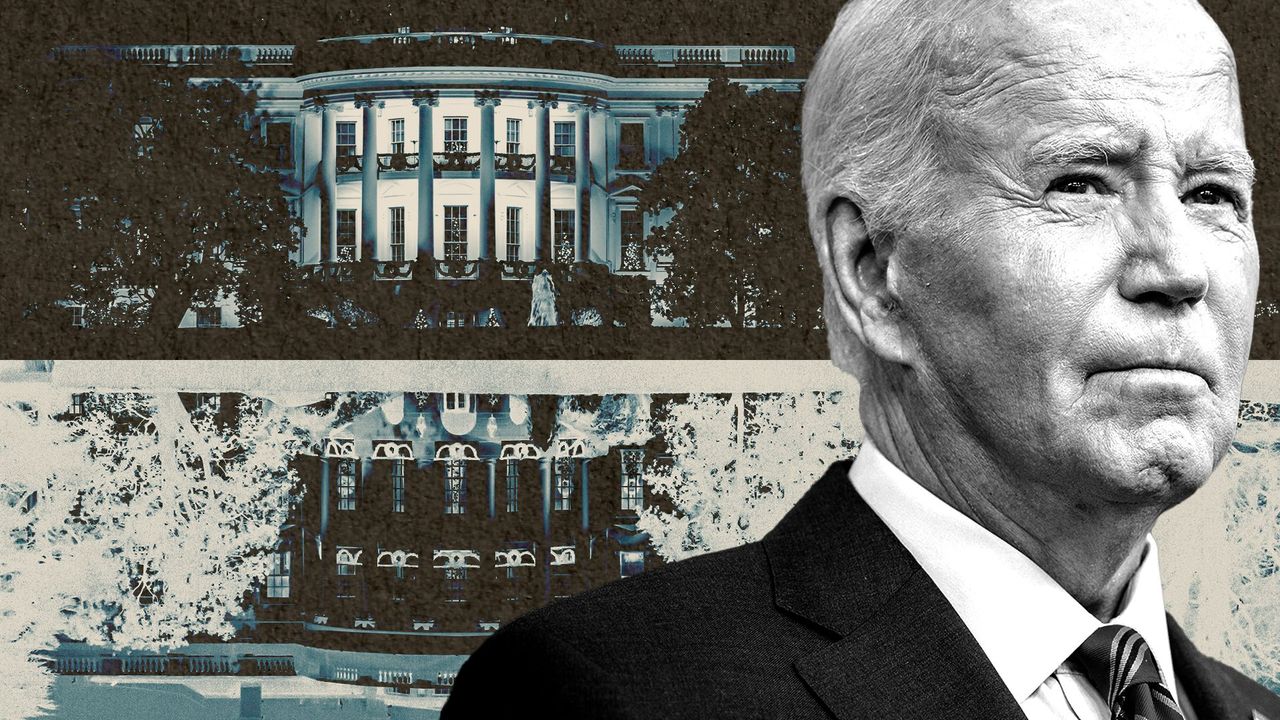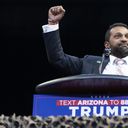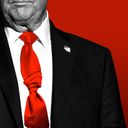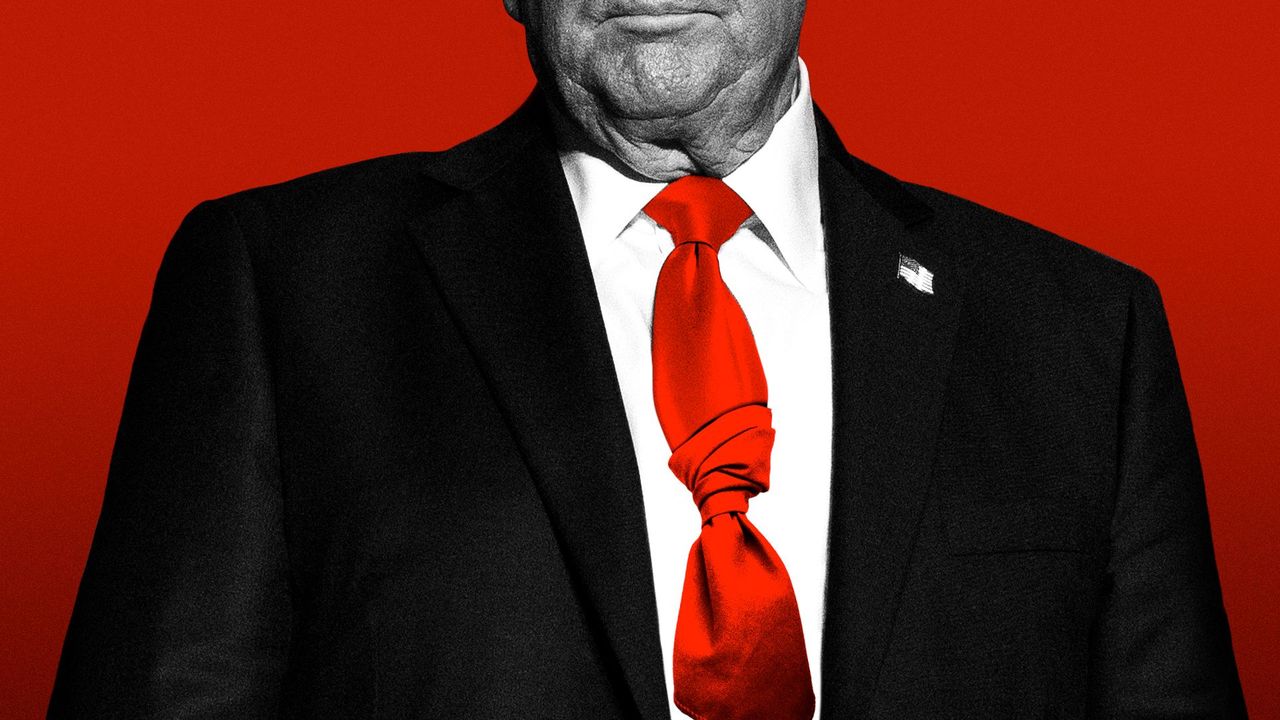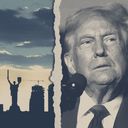Trump tests limits of presidential power with Day 1 barrage
President Trump moved to obliterate the outer bounds of executive power Monday, igniting a series of constitutional showdowns that could curtail — or enable — his vision for a maximalist second term.
Why it matters: Within hours of taking office, Trump dared the courts, Congress and his fragmented opposition to stand in the way of what could be his most enduring legacy: a radical expansion of presidential power.
- He did so publicly and with a flourish — signing an initial batch of executive orders in front of a roaring crowd at Capitol One Arena, before returning to the White House.
- There, Trump signed a barrage of executive orders, announced that Canada and Mexico are likely to face 25% tariffs beginning Feb. 1, and pardoned roughly 1,500 Jan. 6 defendants.
Trump also commuted the sentences of 14 Oath Keepers and Proud Boys convicted of seditious conspiracy— an extraordinary act of clemency for far-right extremists who sought to overthrow the government on Jan. 6.
- Many of the Jan. 6 defendants — targeted in the largest Justice Department investigation in U.S. history — were sentenced by Trump-appointed judges.
- "They've already been in jail for a long time," Trump said when asked if there should be any punishment for supporters who attacked police officers. "These people have been destroyed."
Zoom in: One of Trump's Oval Office executive orders stands out for its ambition and audacity: a declaration ending birthright citizenship for the children of undocumented immigrants.
- Birthright citizenship is enshrined in the Constitution, but Trump's order seeks to "clarify" the language in the 14 Amendment to exclude undocumented immigrants.
- The ACLU and other immigrant rights groups already are planning to sue to block the executive order, and legal experts widely expect it to be struck down by the courts.
Still, new evidence has emerged to suggest that Trump — emboldened by his historic political comeback and a record-high approval rating — may be willing to circumvent or openly defy U.S. law in his second term.
- Trump has refused, for example, to enforce the U.S. ban on TikTok — despite the law passing with the support of over 80% of Congress, and being unanimously upheld by the Supreme Court.
- Instead, he signed an executive order — without citing any legal authority — giving himself "the right" to find a buyer or ultimately ban the Chinese-owned app in 75 days.
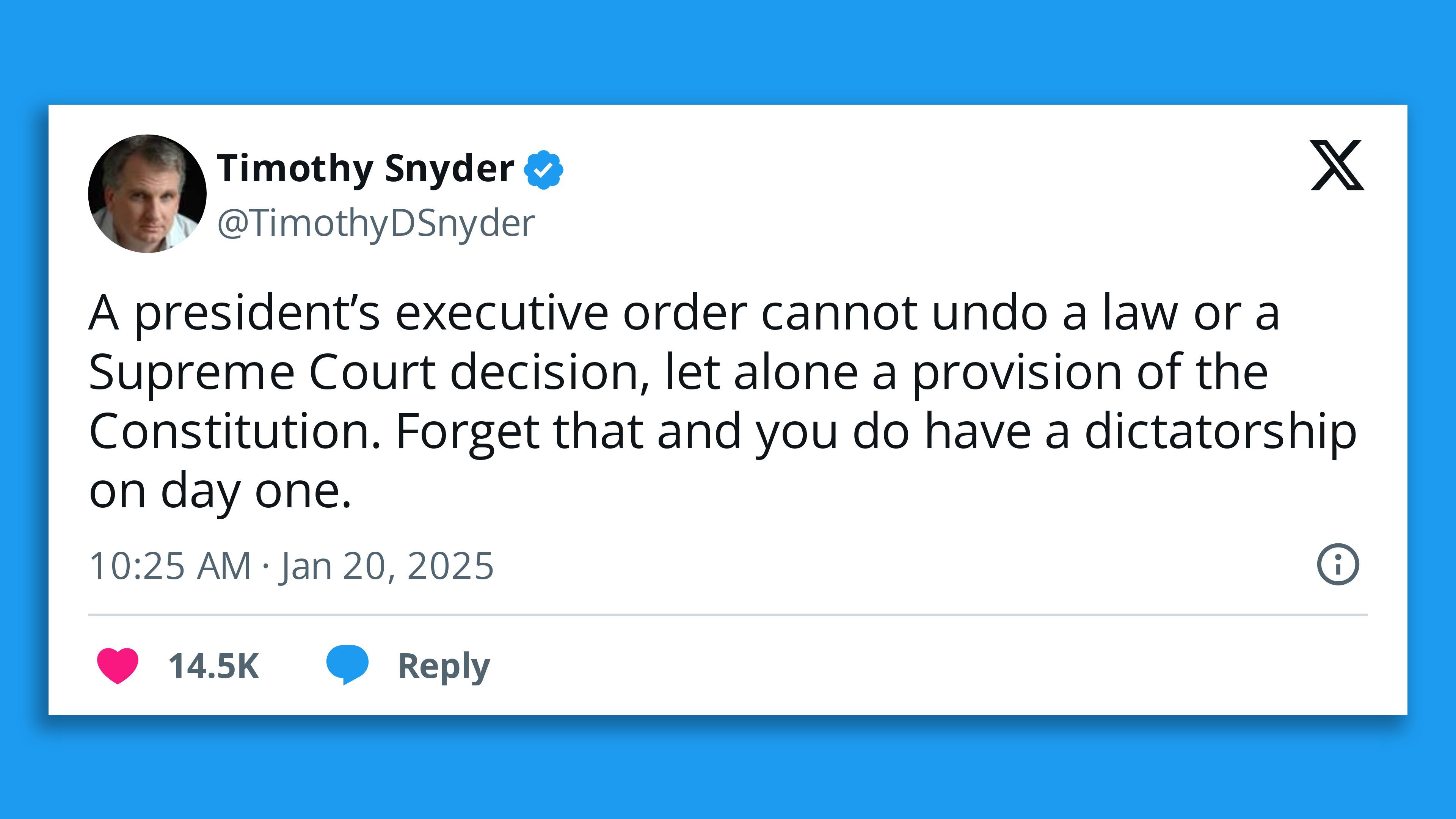
The big picture: Trump's other Day 1 actions vividly illustrate his desire to concentrate power in the executive branch, even while Republicans control both chambers of Congress.
- The new president issued 10 executive orders on immigration, including a national emergency declaration allowing the Pentagon to redirect funds and deploy additional troops at the southern border.
- Trump also designated drug cartels as foreign terrorist organizations, potentially paving the way for the U.S. to deploy special forces in Mexico without permission from Congress.
- He issued an executive order that could strip thousands of civil servants of their employment protections, making it easier to fire federal employees deemed to be "disloyal."
- And even with U.S. fossil fuel production at record highs, Trump declared a "national energy emergency," unlocking new authorities to increase drilling and bypass environmental and climate regulations.
The other side: Trump allies argue President Biden's own actions in his final days in office amount to a greater abuse of executive authority than anything Trump has done.
- That includes Biden's unilateral declaration that the Equal Rights Amendment, which was passed by Congress in 1972 but not ratified by enough states in time, is "the law of the land."
- Biden also issued preemptive pardons for five members of his family in his final minutes in power, citing "unrelenting attacks and threats" of prosecution by Trump allies.
What they're saying: Trump's blizzard of executive orders has exhilarated his base, who see it as proof that he's willing to steamroll the "Deep State" to fulfill his campaign promises.
- But his rapid consolidation of power has unnerved liberals, institutionalists and even some Republicans who are skeptical of big government.
- "In America, we abide by the rule of law. Even when the law comes for a popular app — TikTok — that the MAGA king likes," Joe Lonsdale, a Silicon Valley magnate who supports Trump, wrote in the Free Press.
